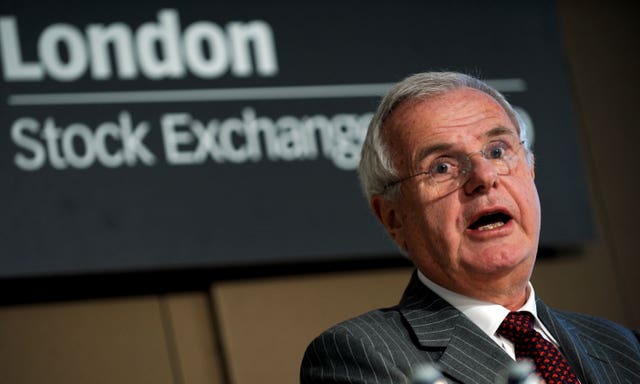The Prime Minister chose a lawyer who was “not appropriate” to lead a review into lobbying around Greensill Capital, whose collapse could cost the taxpayer up to £5 billion, a former city minister has said.
Lord Myners, who served under Gordon Brown for two years, said he estimated that the Government could be on the hook for £3 billion to £5 billion because of the lender’s collapse.
Around £1 billion of this will be direct costs, while the remainder could come from a potential help for one of the UK’s main steel producers, which has been left reeling from Greensill’s collapse.
Former prime minister David Cameron reportedly tried to convince the Treasury to give Greensill a chance to participate in Government-backed Covid loan schemes last year.

Boris Johnson has asked lawyer Nigel Boardman to lead a review into the financing company’s lobbying.
However speaking in front of the Treasury Select Committee, Lord Myners said that Mr Boardman was not the right choice for the job.
“He is one of the top lawyers in the City, but he is not an appropriate person to lead this review,” he told MPs.
He listed three reasons why Mr Boardman was not suitable. Firstly he has a role as a non-executive director at the Department for Business, Energy and Industrial Strategy.
Lord Myners estimated that the direct cost to the taxpayer will be “north of £1 billion of which nearly half will come from the Department of Business’s scheme to accredit Greensill as a lender under the coronavirus loan scheme”.
He also told MPs that a recent report Mr Boardman produced for the Government into procurement was a whitewash, and the lawyer also argued against a piece of lobbying legislation which was introduced in 2012.
“If the reviewer appears to be compromised, that will forever damage the acceptability of the report that is produced … I believe the review that has been commissioned by the Prime Minister should have been handled by a retired high court judge or somebody from the commercial bench,” Lord Myners said.
In further evidence to the committee, he said that Mr Cameron’s involvement with Greensill likely won it many meetings with senior officials, including Charles Roxburgh, the second permanent secretary to the Treasury.
“The Chancellor said he was pushing his officials, and that I think explains why there were nine meetings,” he said.
“That would have been a significant distraction because Roxburgh is one of the most senior and talented people in the Treasury, and it does seem tiresome at the very minimum that he was required to spend so much time on Greensill.”
“I have no doubt that he would not have done that had it not been for the pressing by David Cameron on the Chancellor of the Exchequer and two other senior Treasury ministers.”
Greensill’s business model was to pay suppliers for products they had sold to other companies immediately after a product had been delivered – cutting out a sometimes months-long wait for payment.
Lord Myners said the behaviour of the Treasury itself was “right and proper” during the lobbying, a sentiment echoed by Lord Macpherson.
Lord Macpherson said: “It’s a huge tribute to the quality of officials in the Treasury and also to the Chancellor’s judgment that despite receiving these texts from someone who clearly in a former life had been rather important, that they didn’t give into pressure. The Treasury comes rather well out of it, I think.”
However Lord Myners added: “That cannot be said about the Department for Business, Energy and Industrial Strategy and the British Business Bank.”




Comments: Our rules
We want our comments to be a lively and valuable part of our community - a place where readers can debate and engage with the most important local issues. The ability to comment on our stories is a privilege, not a right, however, and that privilege may be withdrawn if it is abused or misused.
Please report any comments that break our rules.
Read the rules here